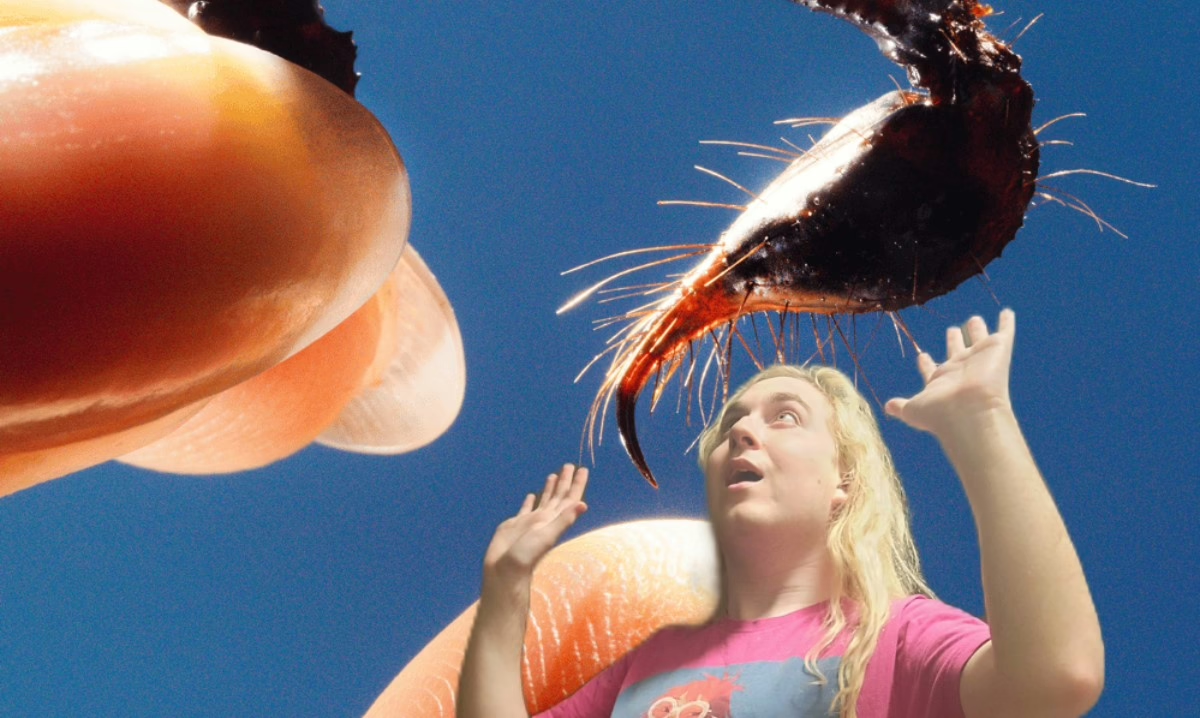Change The Record: Squid – Cowards
After reviewing so many popular, mainstream musicians, I think it’s high time I finally get another indie record on the chopping block.
My indie band of choice for this occasion is Windmill scene’s finest, Squid. The band hails all the way from Brighton England, a seaside town outside of London known for their music scene. For those of you that are confused what windmills have to do with this, the “Windmill” scene is a group of musicians primarily related to The Windmill pub in Brixton. It’s famous for promoting a new wave of British post-punk acts such as, “Black Country, New Road” and “Black Midi.” Squid has long been the unlucky third place of the Windmill scene, and in my opinion—unfairly. I mean, it’s not their fault that their peers are two of the most out-there, experimental bands of the modern era, but even still, it’s an unfortunate truth that they’ve never quite stood as tall as those two.
That’s not to say Squid has never had any acclaim though—and personally, they’ve always held a deep interest in my mind over the years. Their debut album in 2021, “Bright Green Fields,” is one of my favorite debuts of the past five years. For me, they’ve always lacked a certain spark to make them stick out from their contemporaries. Maybe it’s because they’re not quite as bold and genre-bending as Black Midi, or as emotional and cathartic as Black Country, New Road. Whatever the case may be, I can’t deny that Squid has a unique charm of their own, hitting the middle ground between Black Midi’s manic energy and Black Country, New Road’s, melancholic honesty.
Squid’s 2023 album, “O Monolith,” is an album I’ve learned to appreciate more over time. It tamed the off-kilter sound and oddball mannerisms of their debut into something more refined and emotionally clear, even if it loses some character along the way.
This leads us to “Cowards,” their newest project. I didn’t know this existed until I saw a review of it 10 days after its release. This genuinely surprised me—I thought a new Squid release would be making way more fuss, so why did this fail to garner greater attention?
Let’s start the analysis by looking at the tracks. The opener “Crispy Skin” runs for a crisp six minutes, with a plinky, high-pitched synthesizer keyboard throughout, accentuated by a groovy bassline and vocalist Ollie Judge’s eccentric brand of squealed singing. These elements give the track a solid edge and make for a gripping opening to the album. The follow-up track, “Building 650,” is maybe my favorite track on the album. It’s a Slint-esque detour, with a powerful, driving guitar, sauced with lovely strings. It features some of Judge’s most restrained vocals, giving the track a sinister and melancholic vibe—which helps me appreciate the talk-singing even more.
The next track, “Blood On The Boulders,” is even more Slint-like. The song is a slow building post-rock number, whose tension explodes near the end. Unfortunately, I found the build-up more interesting than the payoff, because the repetition of lines, “We wanna know” and “We return to the scene,” felt grating with how shrill Judge’s vocals are. It didn’t feel like the track properly paid off in any way besides getting louder and faster.
Unfortunately, the album doesn’t pick up for the next two tracks: “Fieldworks 1” and “Fieldworks 2.” “Fieldworks 1” is a dull, lifeless interlude and “Fieldworks 2” feels like the band, Don Caballero—if they fell asleep on the keyboard. “Fieldworks 2” just doesn’t carry a very interesting energy. It feels like it’s building up to something, but doesn’t pay off, making this three-track run somewhat of a dead zone in the album.
Despite all of that, the album ends on a high note. It has a solid four track run by the end, beginning with “Cro-Magnon Man,” a delightfully demented little number. It has a heavy driving bassline, and a plucky, deranged guitar track as its main building blocks. Judge pairs this perfectly with the instrumental, as he whispers into the mic like the slimiest pickup artist you’ve ever heard. It complements the writing on the track wonderfully. Squid’s writing has always remained their biggest strength, being able to sketch vividly distressing pictures with their words. Even simple lines like the “pale teeth and white smiles, they don’t care, and I don’t mind” line from the song “Pamphlets,” or their repeated chants of, “I play my part” and “I am my own narrator,” from “Narrator,” both from their debut “Bright Green Fields.” “Cowards” continues on that trend, with a gripping portrayal of a broken man on “Building 650” and its calls of, “No true American.” These lines frame the album’s portrayal of patriotic mania, and “Cro-Magnon Man’s” haunting ending line, “I’ll frame my life in the bones I have left.”
The title track, “Cowards,” transitions from “Cro-Magnon Man’s” unstable jittering into a more luxurious track, the guitars painted in somber colors which slowly fade into gorgeous horns in the back. On the track, Ollie trades his crazed squeaking for an understated mumble, allowing more emotion to seep in. We move from triumphant beauty to a full panicked groove on “Showtime.” It starts off jagged and sharp before gradually shifting into a groovier and guitar driven track, with guitars so sharp in the back it sounds like the pained wails of the broken. It’s slick and emotional, giving the album the energy and tension to end the record off by transitioning into the closing track, “Well Met (Fingers Through The Fence)” an eight-minute journey. It trades the post-punk and post-rock of most of the album in for a full-on art rock track filled with horns and what sounds like female vocals—giving it a softer feel, something equally melancholic, apocalyptic, and even a little hopeful. It has some of my favorite writing from the album, from the repetition of “the church in town, is it crumbling down?” to the closing line, “the future’s perfect from the backseat.” These lines hint at dejected apathy while still keeping your head up, despite our crumbling world. It plays wonderfully as an end to the album, closing out with just a little bit of sadness and hope—likely what we’re all feeling these days.
It’s about time I circle back to a question I asked earlier, which is, why did this record fall under the radar? That’s hard to say. Maybe it was the timing in which it was released, being overshadowed by bigger acts, or maybe it was the more lowkey, sonic direction the album took. Whatever it was, I do feel like it deserved more. The album isn’t perfect by any means. The run from “Blood On The Boulders,” to “Fieldworks 2,” is a real slog, but the album still has plenty of energy and creativity otherwise.
Squid may not have the acclaim of some of their peers but remain a fascinating act to keep up with. The growth throughout their career is exciting, and hey, with Black Midi broken up, they can at least claim second place to Black Country, New Road, as the most interesting windmill band right now—for whatever that’s worth.

Hello there stranger, this is Kate Megathlin, writer for weekly music reviews for the Seattle Collegian, here to assert how much more important her opinions are than yours. She is a Seattle Central student with a major love of music and music culture, and every week she’ll try to deliver reviews of new albums coming out, if you want to recommend albums for her to review, email her at Kate.Megathlin@seattlecollegian.com.







